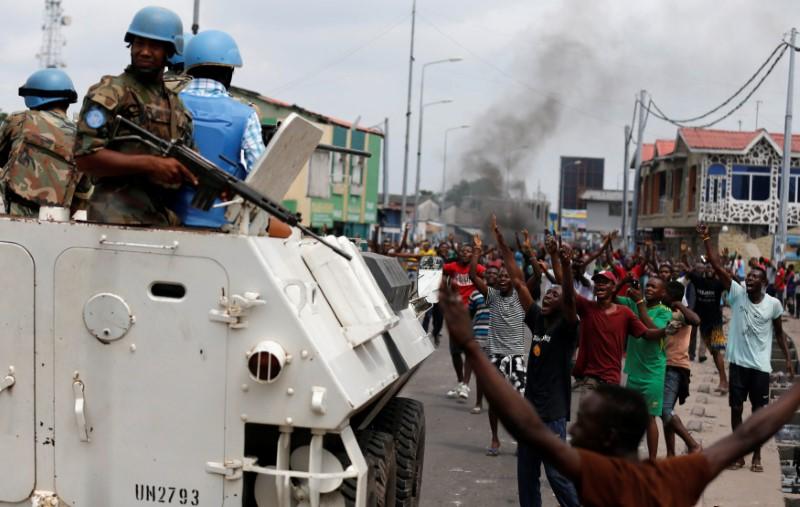
DR Congo government recruited rebels to crush protest-HRW

Over 200 former M23 rebel fighters were mobilised by senior security officers in the Democratic Republic of Congo to quash protests against President Joseph Kabila in December 2016, Human Rights Watch said.
According to the Human Rights Watch, President Kabila’s regime mobilised fighters acting with M23 from Uganda and Rwanda to suppress the December 2016 demonstrations, which erupted when he refused to step down at the end of his term in power.
Between December 19 and 22, 62 people were killed and hundreds more arrested during country-wide protests.
Kabila has since strengthened his hold on power and delayed elections, raising concerns that planned protests will be met with further violence and repression.
M23, a mostly ethnic Tutsi rebel group, was defeated in November 2013 at the hands of Congolese and UN forces. Hundreds of fighters fled the country but officials and residents in the eastern region of Kivu have said they had seen militants return.
“Covert operations to recruit fighters from an abusive armed group to suppress any resistance show how far President Kabila and his coterie are willing to go to stay in power,” said Ida Sawyer, Central Africa director at Human Rights Watch and one of the report’s authors.
Opposition forces are demanding Kabila — who took office after his father Laurent was assassinated in 2001 — step down on December 31, but authorities made several arrests ahead of an opposition march earlier this month.
Congo’s electoral commission (CENI) published an electoral calendar that set December 23, 2018 as the date for presidential, legislative, and provincial elections.
But political opposition and civil society have called on Kabila to step down by the end of 2017 and for a transition without Kabila to be organized.






